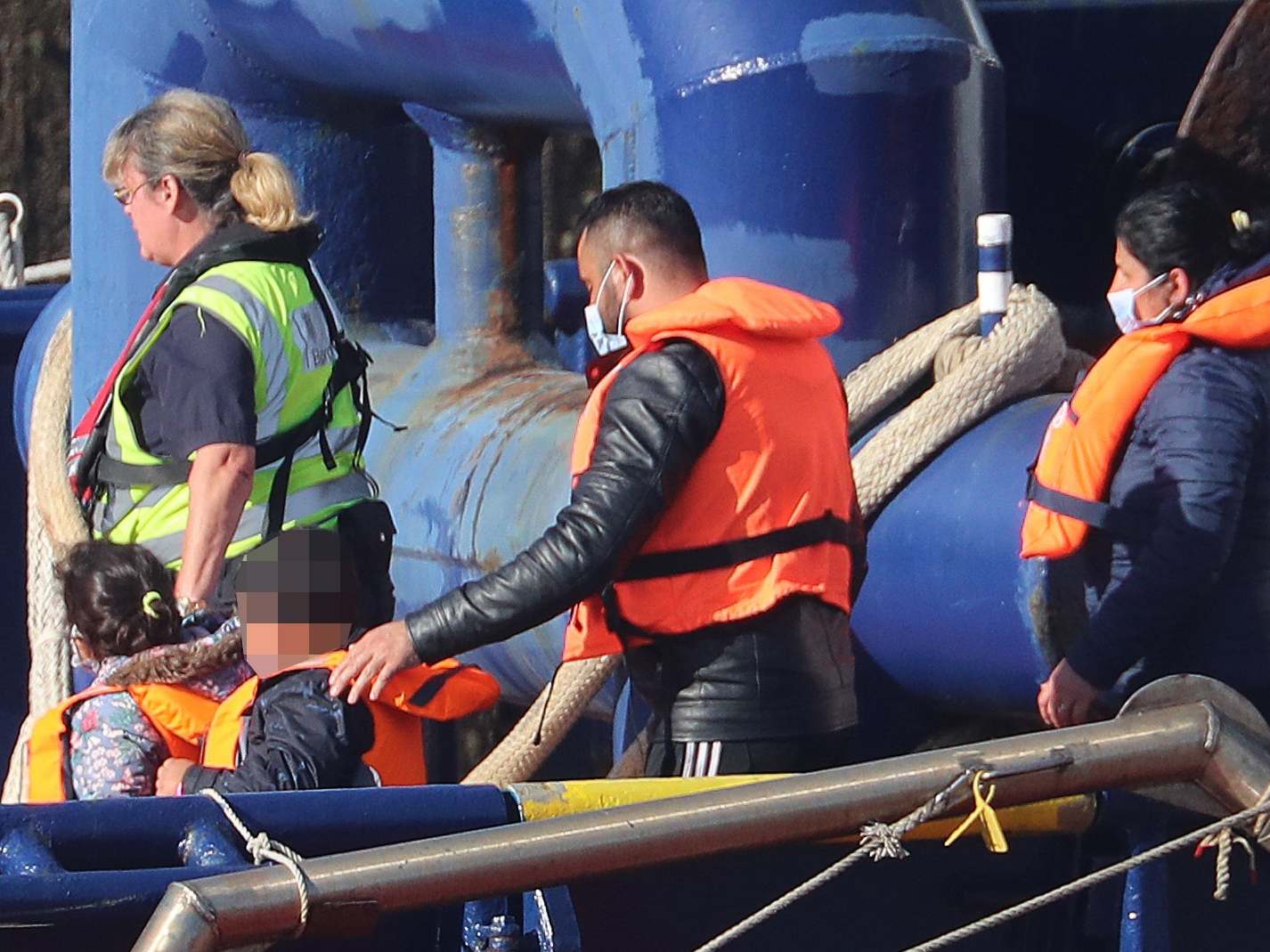Far-right groups targeting hotels housing asylum seekers during coronavirus pandemic
Anger over rising English Channel crossings ‘uniting different strands’ of extremists

Far-right groups are targeting hotels housing asylum seekers across Britain as they attempt to capitalise on hostility sparked by a rise in English Channel crossings.
Police have been called to several incidents where activists have filmed and harassed migrants, who have been placed in emergency accommodation because of the coronavirus pandemic.
Extremists have been circulating lists of hotels to “investigate” on social media after Nigel Farage drew attention to the issue with a series of videos in July.
They have also been swamping websites with negative reviews of hotels that have taken up contracts with the Home Office, urging people not to stay there when they reopen.
Joe Mulhall, a senior researcher at counter-extremism group Hope Not Hate, said the trend was part of a “very long history of far-right groups and individuals across Europe attacking accommodation for migrants”.
“There is a zeal to it this summer because of the increase in boats and hotels being used,” he told The Independent.
“It’s become a cause célèbre. It unites a number of different strands who are active on the far right now.”
Sweden, Germany and Greece are among the countries that have seen violent attacks on migrant accommodation, including numerous arson attacks, since the start of the Mediterranean refugee crisis in 2014.
No significant violence has been reported during recent incidents in Britain, although a man was arrested for allegedly attacking a migrant on a Kent beach earlier this month.
Britain First, whose leader Paul Golding was convicted of a terror offence in May, has posted a series of recent videos after being ridiculed for attempting to use a yacht to “patrol” the English Channel.
On Saturday, police were called after Golding and a group of supporters tried to enter a Holiday Inn in outer London, before filming asylum seekers through windows and approaching anyone entering or leaving the building.
When questioned by officers, Golding did not identify himself and claimed he was filming a “political report for social media”.
The Metropolitan Police said officers were called reports of a "small number of protesters" outside the hotel but found no criminal activity had taken place.
Police were also called to a Britain First stunt at another hotel, in Essex, on Saturday but said “no offences were disclosed” and they were asked to leave.
In a third incident on Thursday, at a hotel in Worcestershire, Golding and his fellow activists managed to enter the building and started banging on bedroom doors to find asylum seekers.
Golding demanded to know where they were from and shouted about “homeless veterans on our streets”, before pursuing migrants as they ran away from the group and tried to hide.
“The individuals had left the premises prior to police arrival and no criminal offences have been reported,” a spokesperson for West Mercia Police said.
Several other groups and activists are carrying out similar stunts, including the anti-Islam For Britain party founded by failed Ukip leadership candidate Anne Marie Waters.
English Defence League (EDL) founder Tommy Robinson has been promoting videos by a blogger who calls himself Active Patriot and has been filming both hotels and migrants arriving in Dover.
A former EDL activist, Glen Saffer, is among the members of a group called South East Coastal Defence, which has circulated a list of hotels and called for “scum” migrants to be “sent back” on its official Telegram channel.
Lisa Doyle, director of advocacy at the Refugee Council, said the charity was concerned at reports of intimidation.
She added: “People seeking asylum have fled persecution and violence, and have come to the UK in search of safety and protection.
“The UK should be a safe and welcoming place for them, and it’s important that steps are taken to ensure they are not subjected to intimidation and harassment.”
Bridget Chapman, of the Kent Refugee Action Network (KRAN) said: “We are saddened that anyone would want to respond to fellow humans in this way.
Hundreds evicted from French refugee camp amid Channel crossings rise
Show all 12“We believe that if the people involved in these actions took the time to meet refugees and hear their stories they would find themselves gaining a greater understanding of their situation.”
She added that KRAN had been “overwhelmed” with donations and offers for help for its work, saying: “We believe that the tsunami of kindness and generosity we have seen is far more representative of the mood of the public than small groups of people or individuals taking part in these misguided actions.”
The Home Office said the government has a legal obligation to provide destitute asylum seekers with temporary accommodation and support while their applications are being considered.
“It has been necessary to temporarily house a proportion of asylum seekers in hotels to make sure they are able to follow social distancing guidelines,” a statement added.
“As well as ensuring that people could comply with the health guidance in place at the time, this avoided placing pressure on local authorities, who were also procuring hotel accommodation for UK rough sleepers.”
A protest is being planned in Dover next month, sparking concerns over a repeat of violence seen at the port during an anti-immigration protest in 2016.
Hope Not Hate said several extremist groups were planning to converge on the town on 5 September, warning that it could turn into a “dangerous and possibly violent flashpoint” following weeks of smaller protests across the UK.
“There are a lot of different groups and activists crossing over and the danger is we start to see those groups coagulate and form some kind of movement,” Mr Mulhall said.
Subscribe to Independent Premium to bookmark this article
Want to bookmark your favourite articles and stories to read or reference later? Start your Independent Premium subscription today.

Join our commenting forum
Join thought-provoking conversations, follow other Independent readers and see their replies